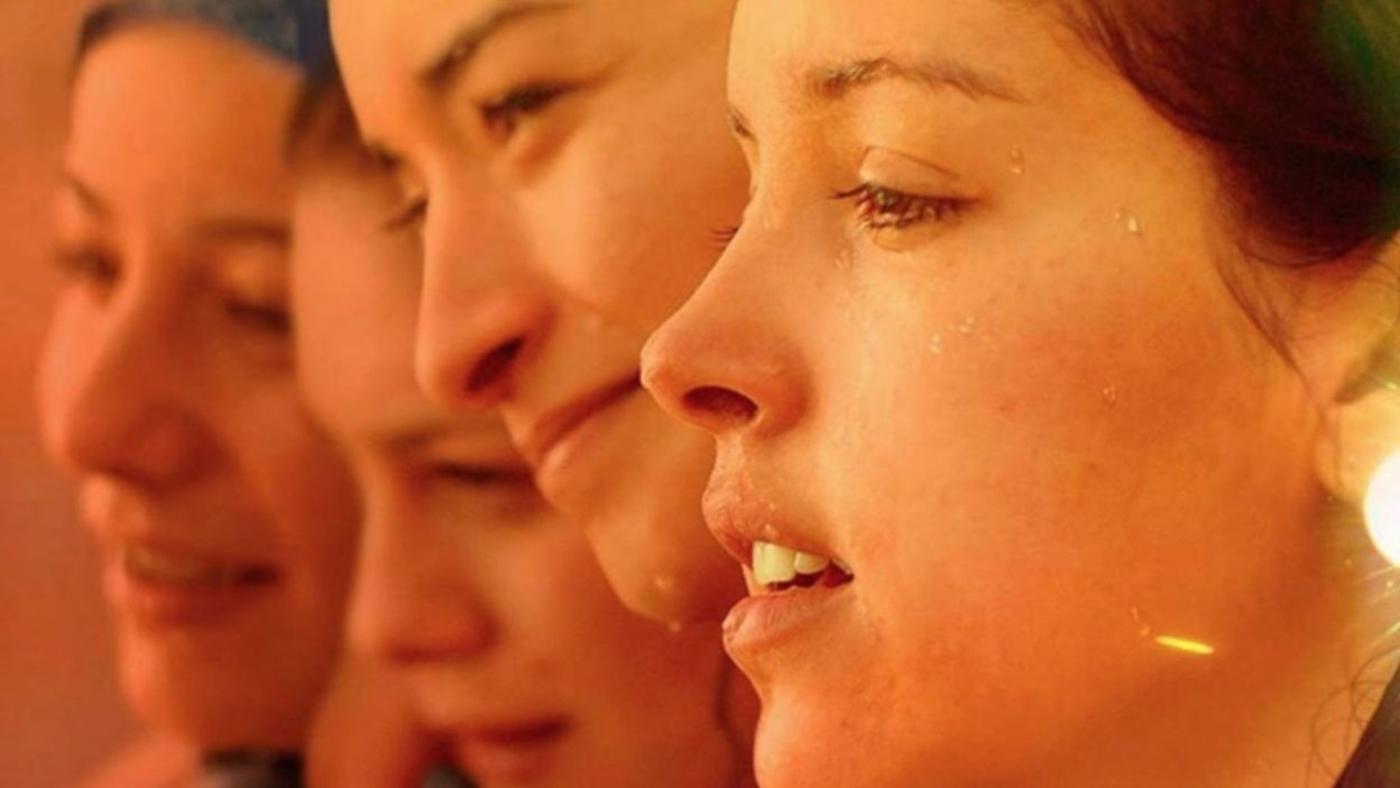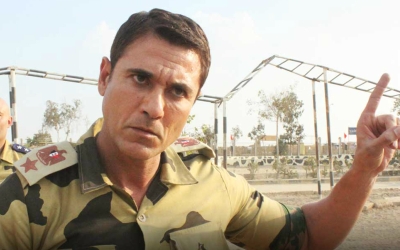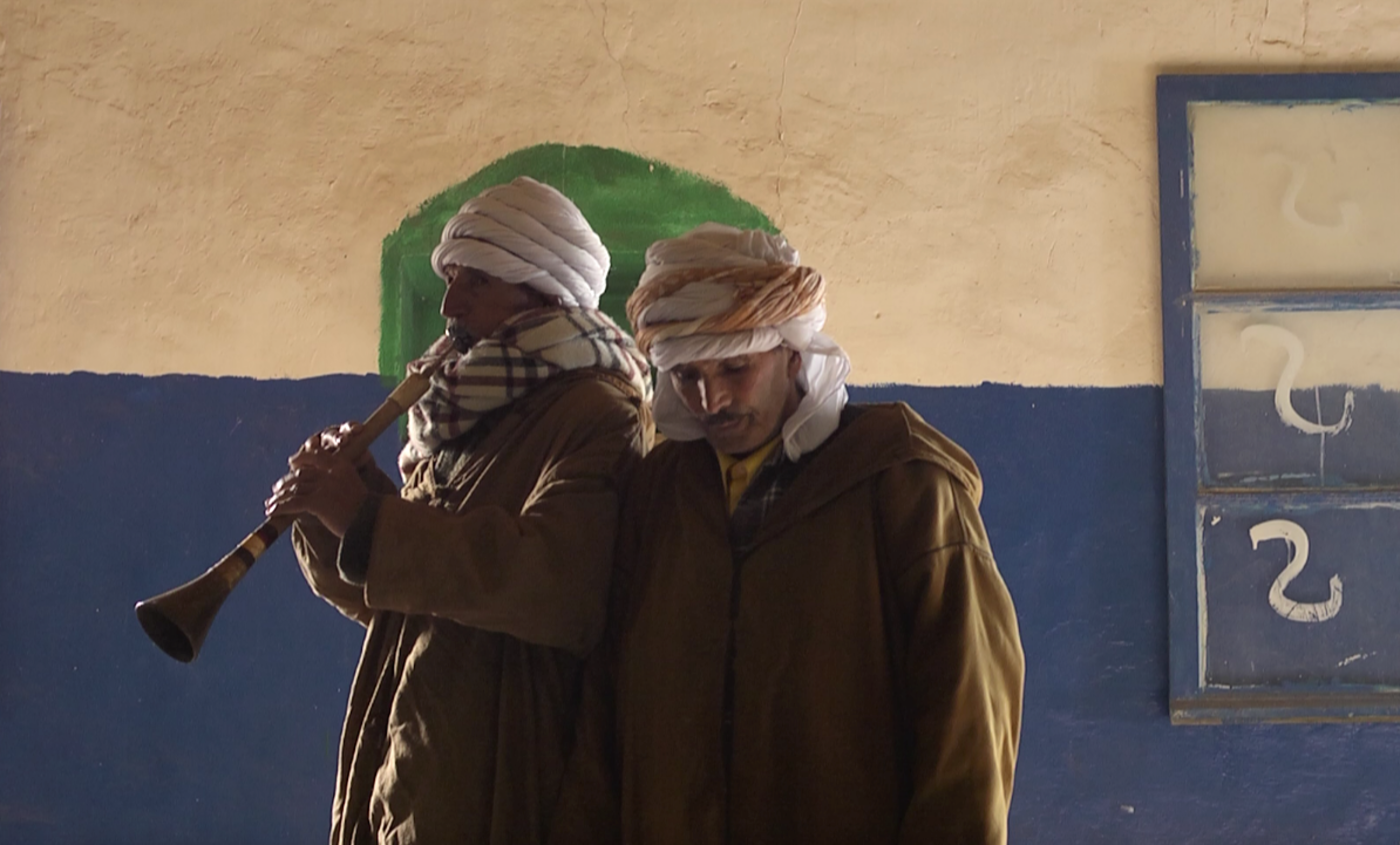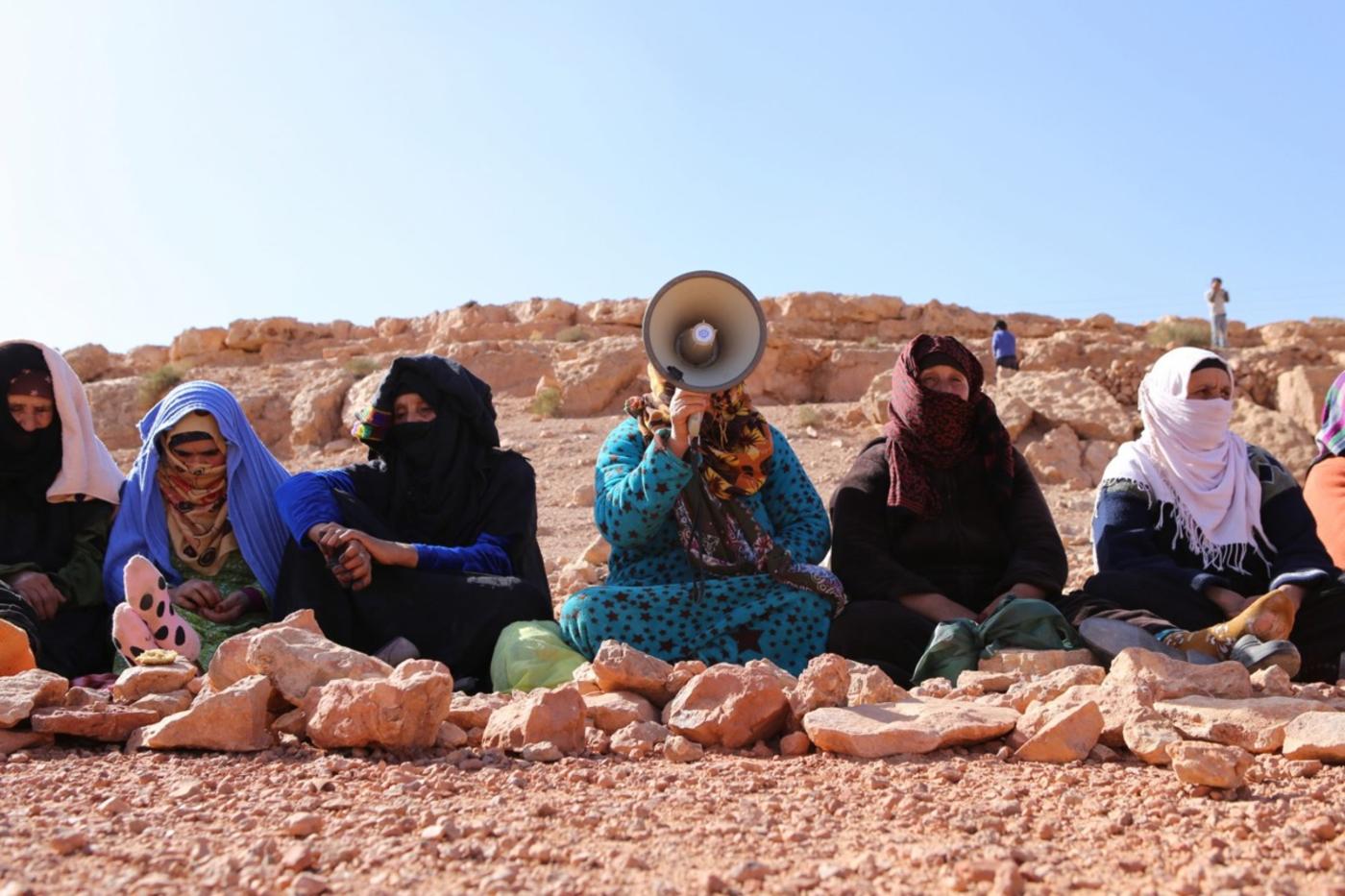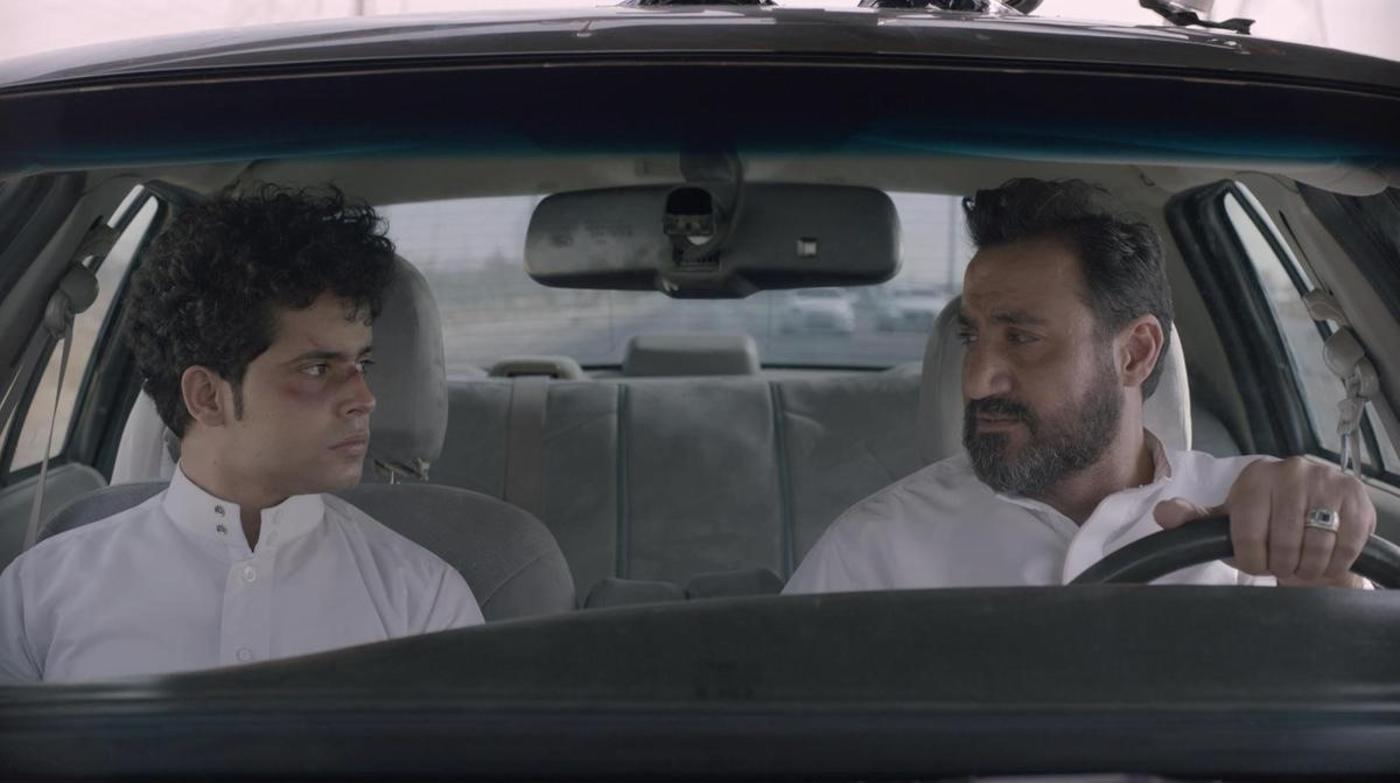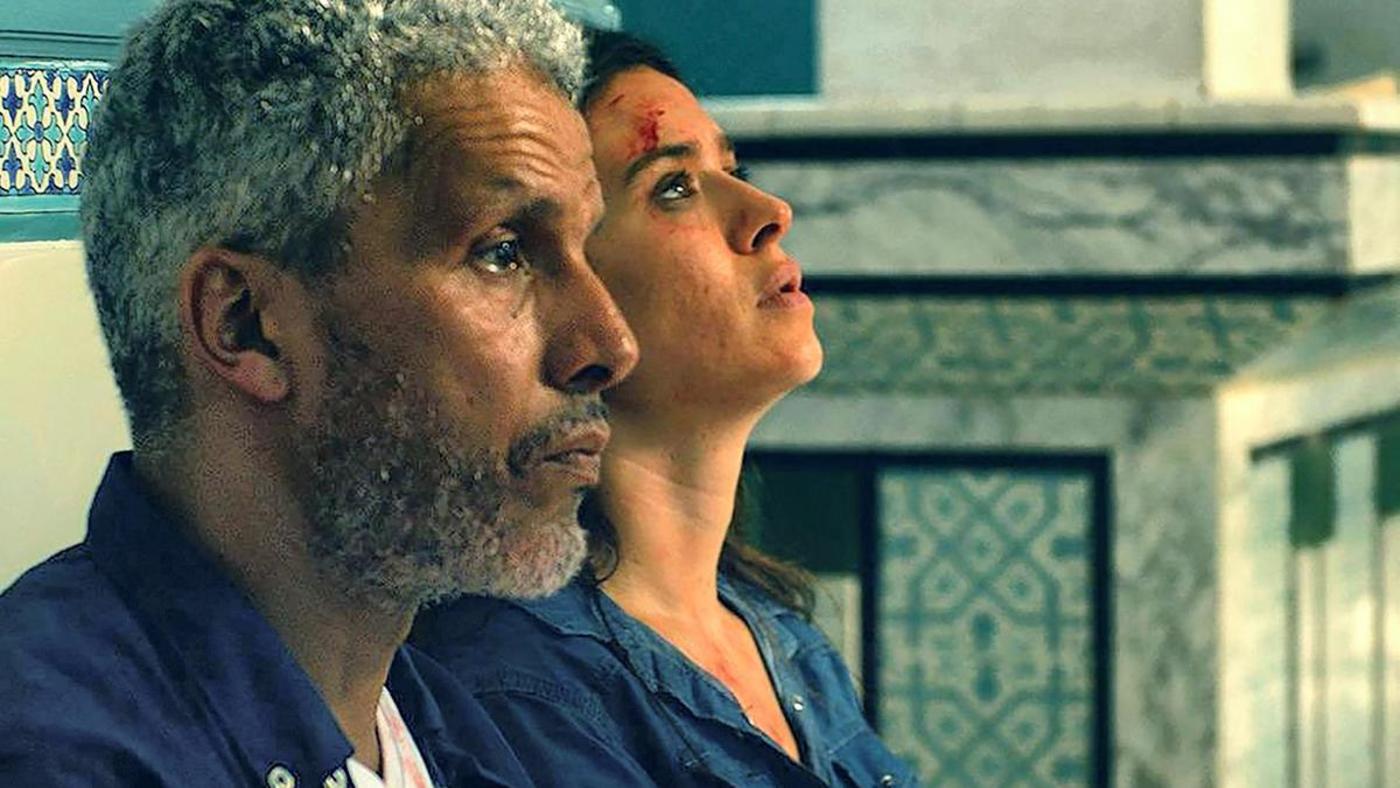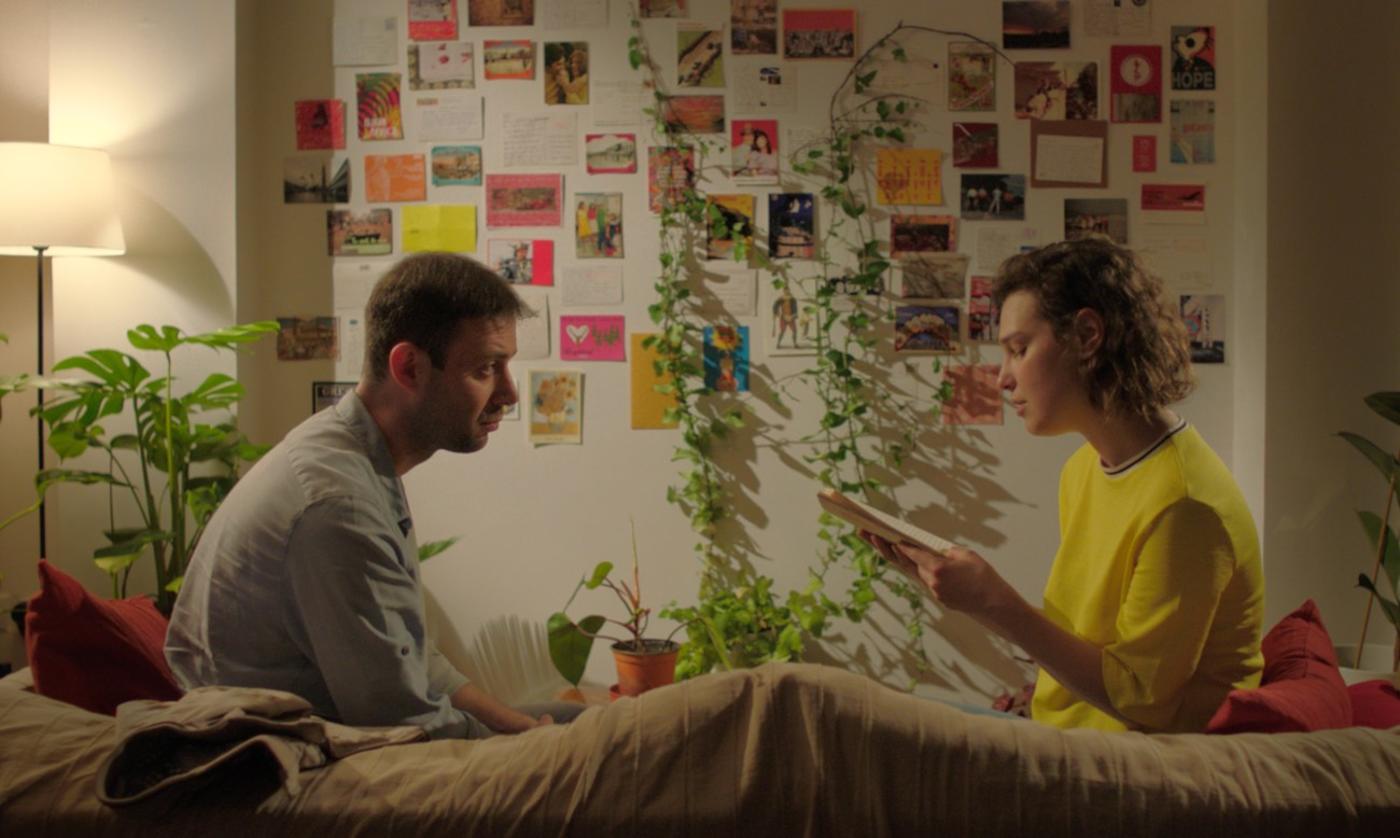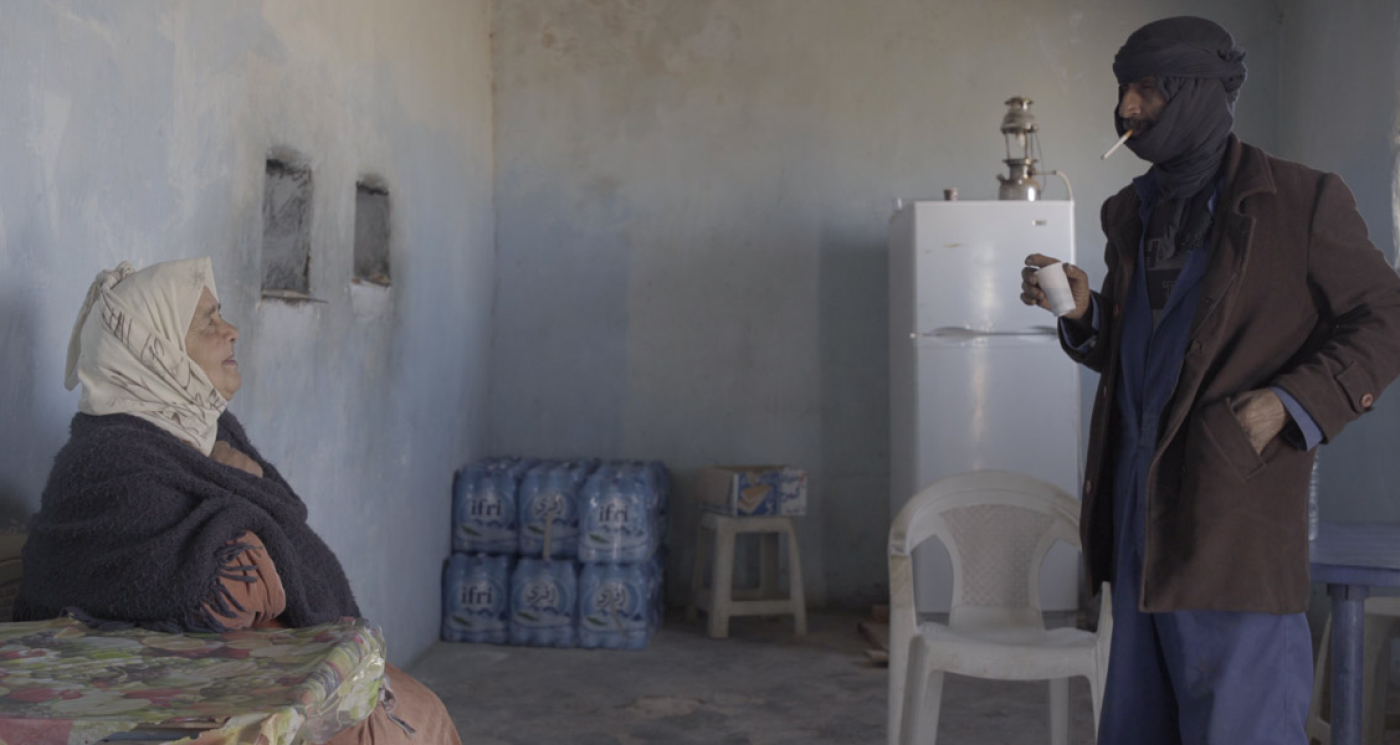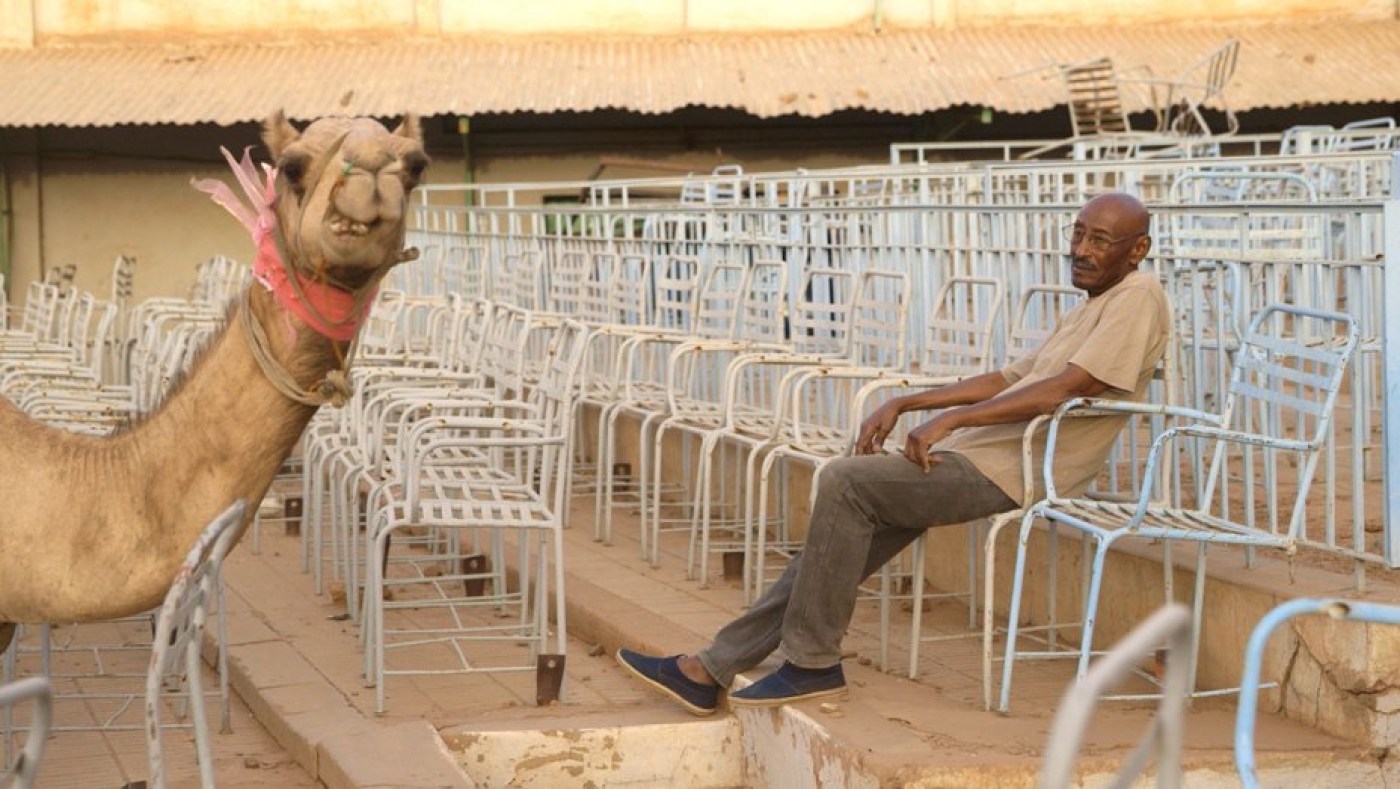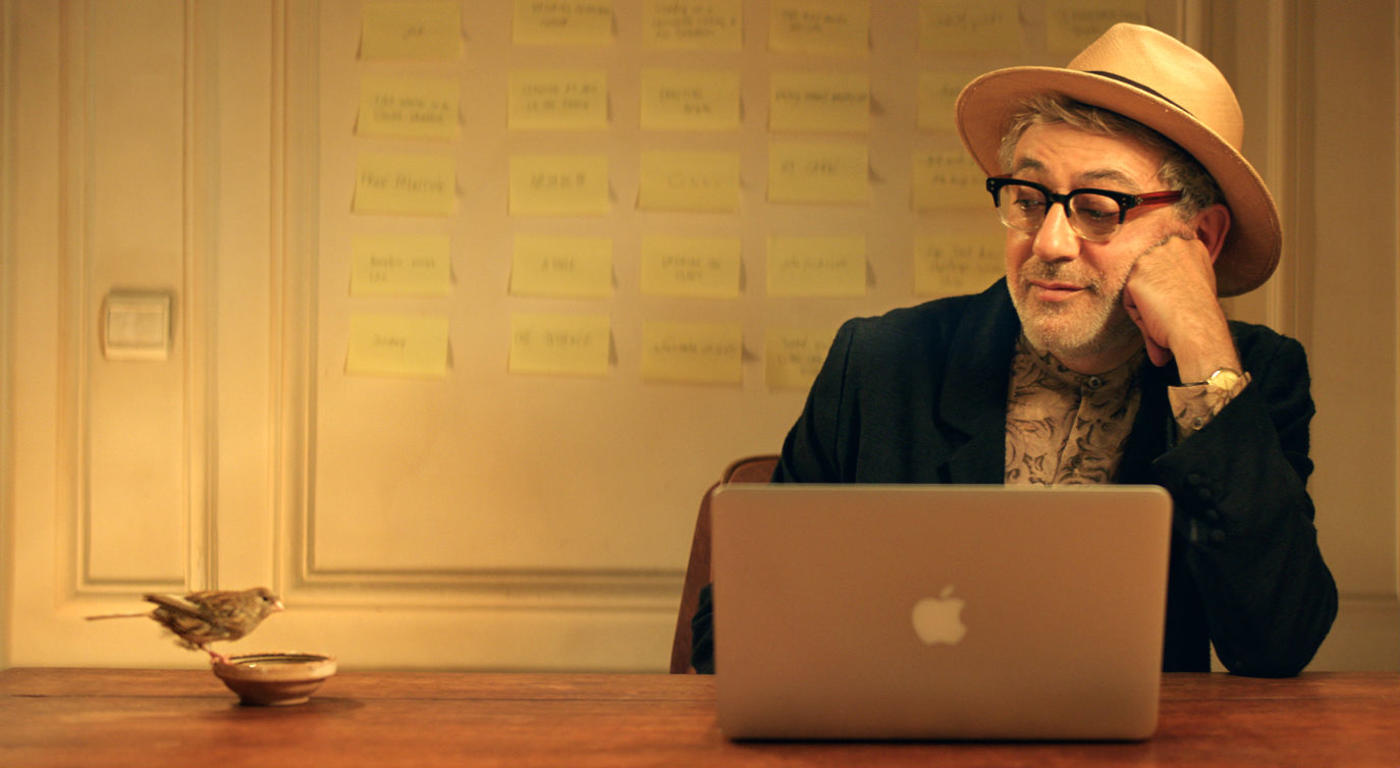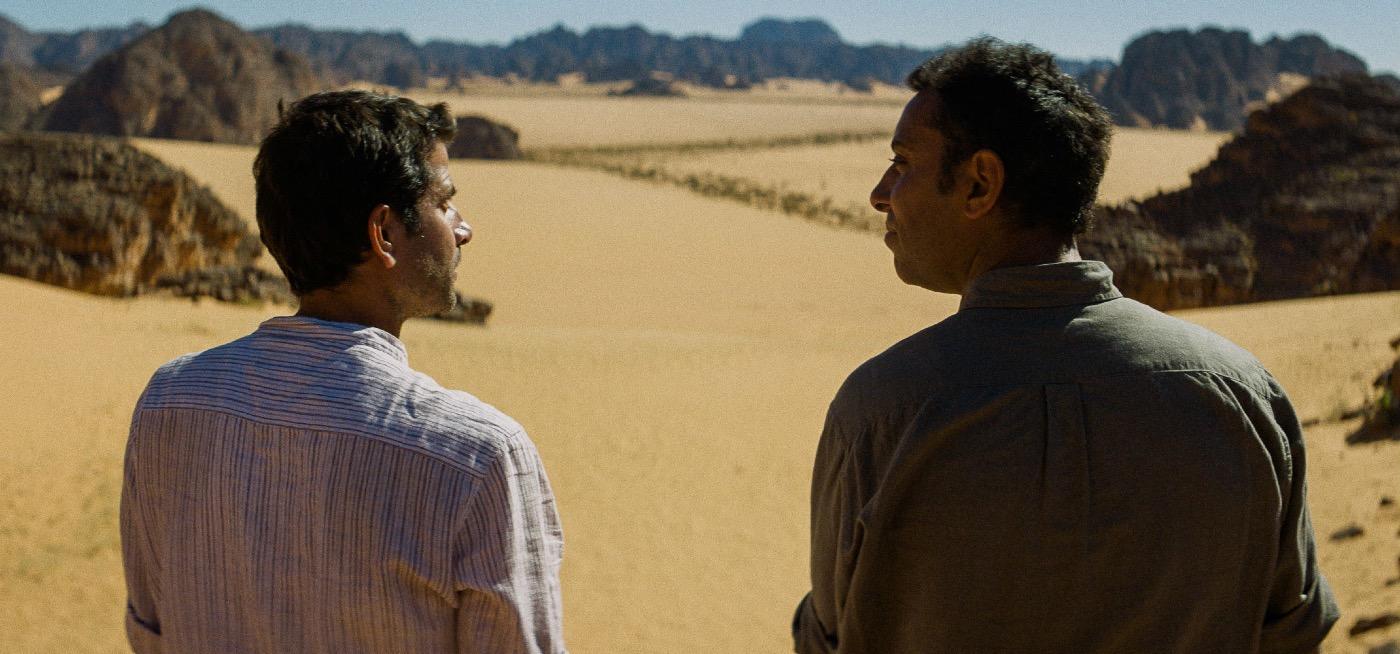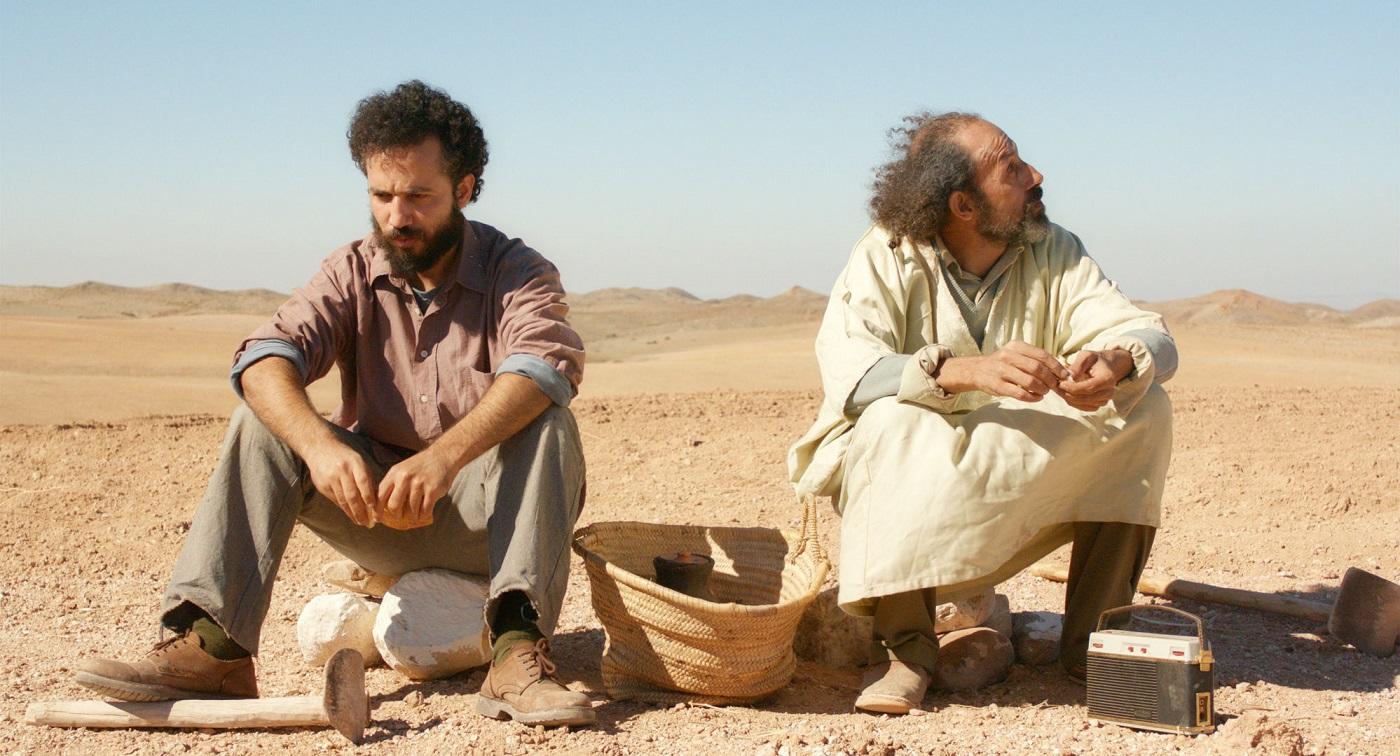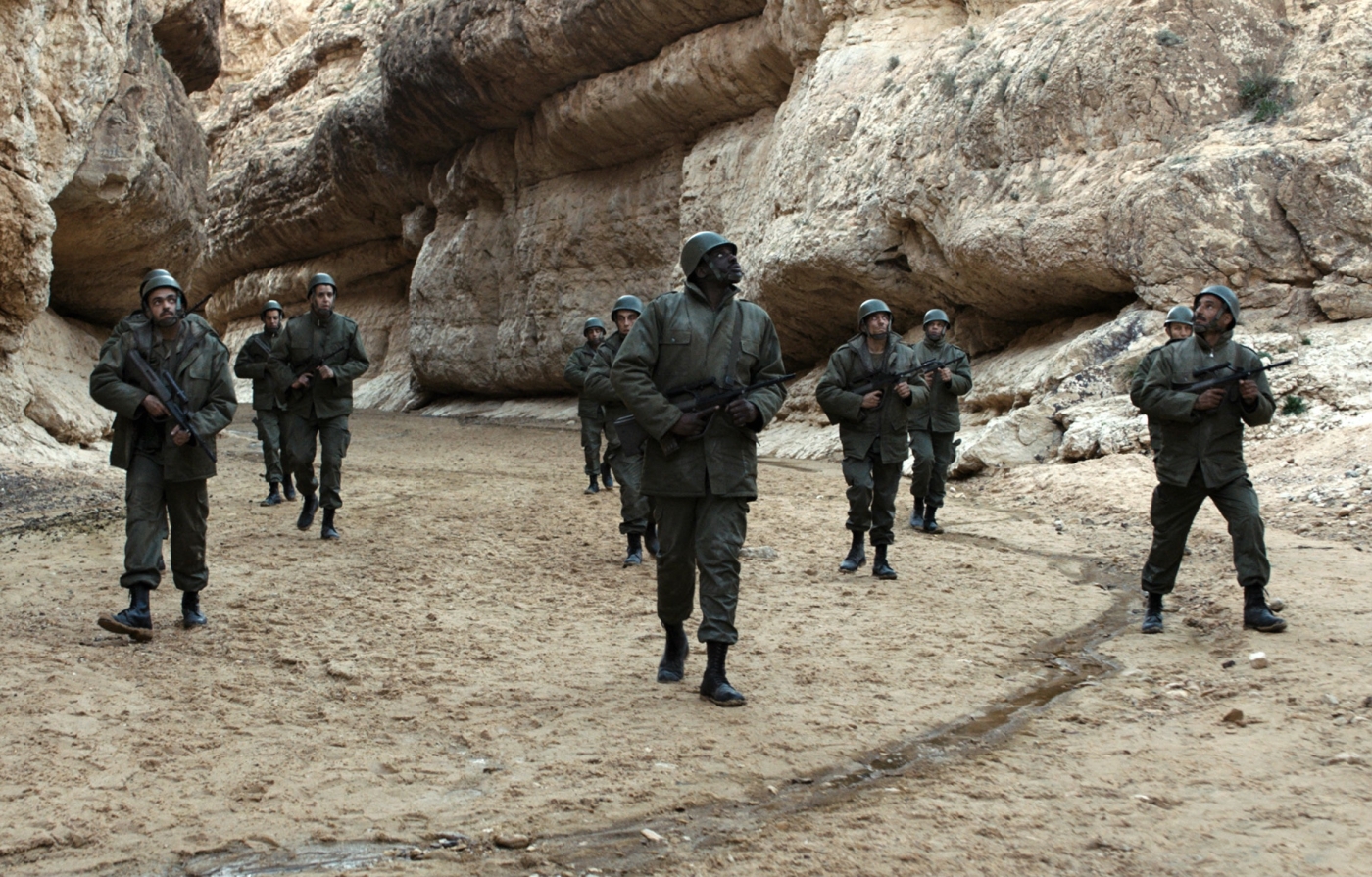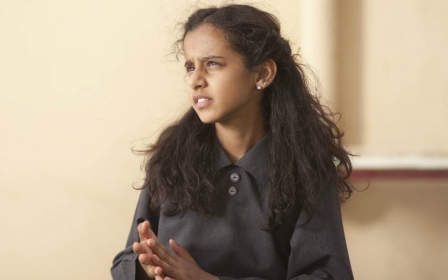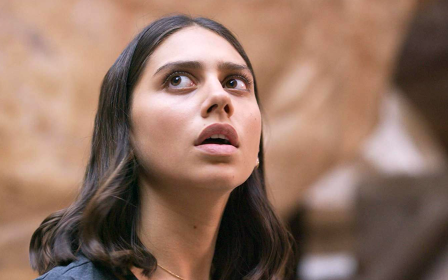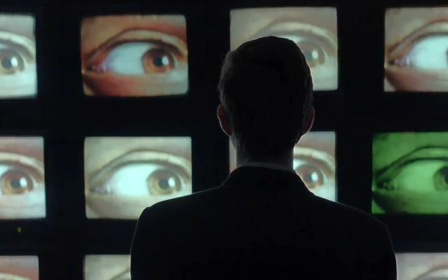Middle East cinema: These are the region's top films of 2019
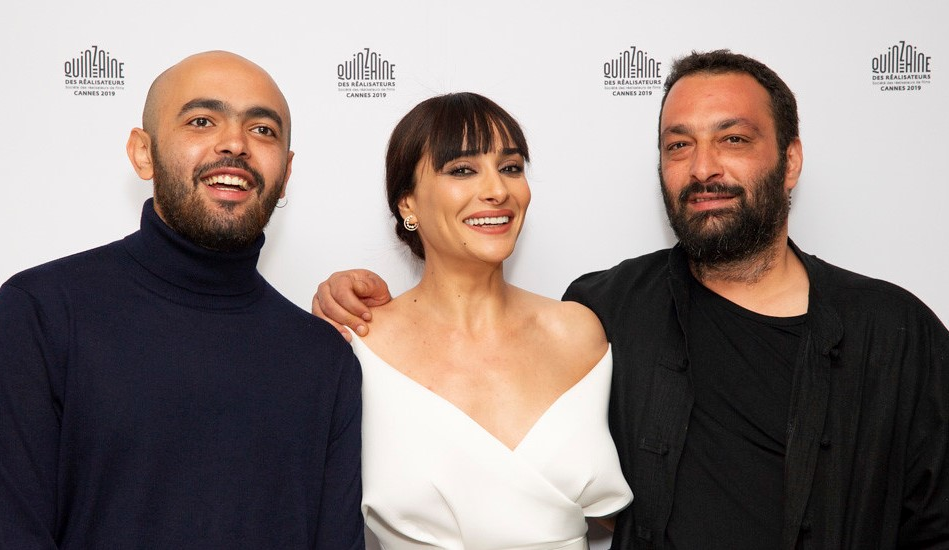
Are we living in a golden age of Middle Eastern cinema? That might be an over-statement, given the erratic output of most MENA cinema, the lack of regional funds and increasing censorship.
Nadine Labaki’s Capernaum became the highest grossing Arab movie of all time
But something exciting is happening, as seen in the bold visions, formal innovations, liberal politics and growing popularity of films at international festivals and the box-office.
This was the year when Sudan and Saudi Arabia announced themselves as cinematic forces; Nadine Labaki’s Oscar-nominated Capernaum, first released in 2018, became the highest grossing Arab movie ever, thanks to its $50m tally in China; Palestinian director Elia Sulieman released his first feature in a decade; and MENA genre cinema began to flower.
Most of all, 2019 was when the cinema of the Maghreb – Tunisia, Algeria and Morocco – elevated the regional film scene onto a higher plateau. Thanks to different genres, aesthetics and confrontational politics, North Africa is where the real evolution of Middle Eastern cinema is happening.
Yet the adventurousness of 2019’s best films makes it hard to cast a blind eye to the serious flaws of several of its most popular and championed pictures. Often there was a glaring disjuncture between festival attention and box-office on one hand, and quality cinema on the other (see for example, the success of Papicha, Mounia Meddour's superficial Algerian debut, at the French box-office, where it took an estimated 1.6m euros or $1.8m).
New MEE newsletter: Jerusalem Dispatch
Sign up to get the latest insights and analysis on Israel-Palestine, alongside Turkey Unpacked and other MEE newsletters
Most of the plaudits directed towards such films concerned their politics. But these readings have proven to be misguided, if not orientalist, too often missing the bigger political picture while overlooking the films’ structural and narrative inadequacies just to promote worthy messages to western audiences.
Another driver in 2019 was how Middle Eastern cinema fluctuated due to unstable regional politics. Even before mass protests, Lebanon’s crumbling economy hit its otherwise thriving film scene, which has figured prominently on the international festival scene during the past decade. The only two major productions – All This Victory and 1982, director Oualid Mouaness’s Toronto winner – have been years in the making. Slim pickings indeed.
Egyptian cinema suffered from mounting censorship and the monopolisation of the entertainment industry by the Sisi government, resulting in the poorest year for MENA’s biggest film industry in more than a decade. Only two low-budget features reached international festivals; Certified Mail (Bi Elm El Wossul), Hisham Saqr's largely tepid look at middle class malaise; and Let’s Talk, Marianne Khoury’s autobiographical family portrait. Their apolitical nature and dependence on private funds show the stifling restrictions on Egypt’s industry.
The noticeable absence of Palestinian films, aside from Suleiman, in 2019 was less due to a slump, more the incessant absence of infrastructure that makes it hard for even established directors to realise their work.
Iraq had a rare hit at the Shanghai Film Festival with Haifa Street, Mohanad Hayal’s war-time thriller. Iran, meanwhile, still struggled to escape the shadow of revered director Abbas Kiarostami, who died in 2016, failing to attract programmers and distributors. It still delivered two terrific crime dramas in Saeed Roustaee’s Just 6.5 and Nima Javidi's The Warden.
Away from screening rooms, the most discussed topic for the MENA film industry was Saudi Arabia’s Red Sea International Film Festival. Scheduled to begin on 12 March, it will offer combined grants of more than $1m. But the festival will be held in the same month as Doha’s Qumra, the region’s biggest and most respected industry platform, potentially starting a cultural war in the Gulf.
The shadow of the Khashoggi murder and other human abuses still loom over Saudi attempts to revitalise its culture. Whether the new rich kid on the cinema block can attract a substantial industry presence or is shunned by film-makers could be the most intriguing industry story next year. But that is for 2020: here are my dozen best Middle Eastern movies of 2019, as ever in descending order.
12. In Mansourah, You Separated Us
Dorothee Myriam Kellou, an award-winning French-Algerian journalist-turned-film-maker, investigates the forced displacement of two million Algerians at the hands of the French army during the Algerian war of independence as she escorts her father to visit the childhood home he hasn’t seen in nearly half-a-century.
Handled with great sensitivity, tact and compassion, Kellou’s debut documentary is a perceptive study of trauma, the vagaries of collective memory and the debilitating impact of loss.
11. Amussu
A group of Moroccan villagers residing alongside the largest silver mine in Africa sabotage a pipeline after enduring years of water scarcity caused by the plant. This act of rebellion evolves into a grand movement that leads to the formation of a protest camp where the villagers are pitted against the police in Nadir Bouhmouch’s searing, angry documentary.
Combining ethnography, cinema verite and, in a wild stylistic touch, musicals, Bouhmouch’s sophomore feature functions as a sucker punch against the authorities; a disparaging look at the impact of state-backed capitalism on traditional life; and a hymn to collective endurance against a Goliath-like apathetic adversary. Possibly the year’s fiercest political feature.
10. The Cave
Waad Al-Kateab and Edward Watts have been universally lauded for For Sama, this year’s runaway Syrian hit, which has raked in awards the world over and figured in many year-end best-of lists. While certainly deserving, it suffers from over-familiarity, presenting an inspiring if tidy narrative whose rightful aim is to remind the world of Bashar al-Assad's ongoing atrocities rather than shed new light on the conflict.
The Cave, Feras Fayyad’s follow-up to his Oscar-nominated Last Men In Aleppo, also does not offer fresh any fresh perspective on the war. But it defiantly dispenses with narrative altogether, creating instead a unremitting viscerality that vividly captures the chaos, hopelessness and senselessness of the combat as seen from an underground hospital in Eastern Ghouta. Both a harrowing physical record and an examination of our conflicted relationship with images of violence, The Cave may be too gruelling and graphic for some, but is certainly not as straightforward as some Arab pundits deemed it to be.
9. Last Visit
The seeds of the new Saudi Arabian film movement, clandestinely planted a decade ago, were finally reaped in 2019, resulting in three completely dissimilar films. The Perfect Candidate, Haifaa al-Mansour’s fourth feature, is a workplace drama about a young Saudi physician running for office. Meanwhile Scales, Shahad Ameen’s debut, is a feminist mermaid fable centring on a teen girl’s struggle to break an ancient curse and challenge patriarchal traditions.
But Last Visit, Abdulmohsen Aldhabaan’s debut, is an altogether different proposition. A measured domestic drama, its focus is an estranged father and son (played by Osama Alqess and Abdullah Alfahad) who are forced to acknowledge their mutual remoteness and disappointments towards one another when they’re abruptly summoned to tend to a dying grandfather. A two-hander reminiscent of director Ingmar Bergman, Aldhabaan tackles generational disconnection, failure of communication, inherited toxic masculinity and the subtle tyranny of tradition in this remarkably ambitious yet subtle chamber piece.
Through its narrative depicting a nation at a crossroads but not knowing where to head next, Last Visit can lay claim as Saudi Arabia’s first real arthouse feature.
8. A Son
The rise of genre film has been one of the most exciting trends in Middle Eastern cinema in recent years. With A Son (Bik Eneich), Tunisian director Mehdi Barsaoui finds a new urgency and purpose for the North African social thriller.
In one of the very best Arab performances of the year, Sami Bouajila (Days Of Glory, London River) plays an upper middle-class husband and father who must make demanding moral choices after his 10-year-old son is injured during a terrorist ambush in 2011.
What follows is a pressure-cooker drama where nothing is as it seems, as the divulgence of family secrets kickstarts an incisive portrait of class, latent machismo and self-serving confabulation, all set in a land on the brink of seismic shift.
With an assured hand, Barsaoui seamlessly weaves these strands into a tightly controlled narrative, using thorny family dynamics to contest the questionable morality of Tunisia’s self-righteous liberal elite.
7. Belonging
It was not a vintage year for Turkish cinema: A Tale of Three Sisters (Kız Kardesler), Emin Alper’s coldly received Berlinale competition contender, was the most high-profile feature at festivals. But the real Turkish discovery of 2019 was Burak Cevik’s Belonging (Aidiyet), an experimental dramedy that ranks among the most formally inventive Middle Eastern movies of the year.
Cevik’s sophomore effort is divided into two parts: the first, the murder of an elderly lady at the hands of her daughter’s boyfriend, recounted via voiceover and juxtaposed against still images of empty urban locations.
The second part, set during one evening, chronicles the romantic first encounter between the daughter and the boyfriend. Part noir-thriller, part American avant garde landscape panorama meets Before Sunrise-style romance, Cevik’s atypical hybrid oozes with mystery and charm, beguiling and enchanting in equal measures.
More than anything, Belonging is a testament to the limitless boundaries and infinite possibilities of storytelling that subverts traditional narration.
6. 143 Sahara Street
After attracting considerable attention for Roundabout in My Head (Dans Ma Tete Un Rond-Point), Algerian documentarian Hassen Ferhani returned in 2019 with his third and best film to date: 143 Sahara Street (143 Rue du Desert), a picturesque account of Malika, the elderly unmarried owner of a desert lay-by and her ostensibly still world.
Malika is an elusive subject, as is the engulfing and enigmatic desert whose existence is just opaque as Ferhani’s central character. Her anecdotes, recounted in sporadic interactions with passersby and the handful of men in her life, grow more contradictory, as the largely silent camera fails to penetrate her psyche.
Equally expansive and intimate, Ferhani’s rich, multi-layered tapestry is a meditation on ageing, the slipperiness of memory and the transience of time. It’s also one of the most fascinating cinematic enquiries into the hazy, prickly relationship between the film-maker and his subjects.
5. Talking About Trees
The rise of Sudanese cinema has been the biggest Arab success story of the year. In Talking About Trees, Suhaib Gasmelbari’s debut feature - which won best documentary at the Berlinale - we may have the very first Sudanese classic. The narrative charts the lengthy and extensive endeavours of a collective of retired directors called the Sudanese Film Club as they attempt to reopen a movie theatre in Omdurman, Sudan’s most populated city.
Facing incredible red tape and general resistance to anything cultural, the group’s determination conceals a desire for self-assertion and rediscovering the spirit and passion that Omar al-Bashir’s regime had suppressed for nearly 30 years.
Both a tribute to Sudan’s long-forgotten cinematic heritage and a celebration of film as tool of resistance, this droll, heart-warming gem is that rare Arab documentary: an emotionally generous crowd-pleaser that never shies away from pinpointing the ugly, dispiriting reality of its country.
4. It Must Be Heaven
Elia Suleiman, the Arab world’s greatest living film auteur, made his long-awaited comeback in 2019 with his first feature shot mostly outside Palestine. Contrary to his previous films, Suleiman is in nearly every scene of It Must be Heaven, as his silent Tati-esque alter ego leaves his hopeless homeland of Nazareth for a saner life in Paris followed by New York.
The result is patchy and uneven. Some gags rank among Suleiman’s funniest while others are superfluous and lack punch. His sketches of luxurious, spoilt Paris and arms-crazed New York often feel redundant and not that insightful. Yet while It Must Be Heaven is certainly not Suleiman's best work, it still contains enough transcending cinema to elevate it to the ranks of the year’s best films.
The world outside Palestine, Suleiman finally deduces, is no different than his homeland, with its violence, alienation and indifference, a grand capitalistic prison of individualism and futility.
Most of all, It Must Be Heaven is a furious manifesto of Arab frustrations, from the humiliating treatment at airports and the maddening idleness and purposeless of life at home to the persistently blind racism of the self-congratulatory white west. Teeming with acidic humour and profound rage, yet leavened with dashes of humanity, it is capped by the most powerful ending of any Middle Eastern film this year.
3. Abou Leila
Has there ever been a film about the Algerian civil war as hallucinatory, as disturbing, as unpredictable as Abou Leila? Amin Sidi-Boumedine’s debut is anything but your average Algerian civil war flick. With an intentionally opaque narrative and moral vagueness, its aesthetics and form are worlds apart from the historical and social drama associated with the subject. The year’s best Middle Eastern thriller is a head-trip to hell, a nightmarish, Conrad-like journey into the heart of darkness.
At the peak of the war, two men (played by Slimane Benouari and Lyes Salem) embark on an ominous expedition in the middle of the Sahara to hunt down the eponymous terrorist. That’s the basics of a film where identities, motivations and logic are uncertain till near the end.
In Sidi-Boumedine’s foreboding, pitiless wasteland, the real and the nightmarish are difficult to discern, reflecting the blood-infested climate of the the 1990s. Comparisons to the surrealist noir of David Lynch are inevitable, yet Abou Leila is a unique beast, an evocative, genre-bending picture brilliantly capturing the paranoia of a people brought to their knees by incomprehensible violence.
Although a little rough around the edges, it remains one of the most exciting Algerian debuts of the decade.
2. The Unknown Saint
For sheer entertainment, Moroccan Alaa Eddine Aljem’s auspicious debut The Unknown Saint is the year’s most enjoyable, most side-splitting Arab film, abundant with minimalist comedy and the kind of near-blasphemous jokes that would make Suleiman - an acknowledged influence - proud.
Dig deeper however and you’ll unearth the kind of intelligent, original comedy seldom seen not only in the Middle East but anywhere else really. This is the kind of humour that asks some of the most pertinent questions about the post-Hassan II Moroccan reality with delicacy and skill.
Younes Bouab, the prince of independent Moroccan cinema, plays an unnamed thief who rashly buries his loot in a deserted village before ending up in jail. On release, he discovers that the spot has now been transformed into a religious shrine and is attracting tourists.
What begins as a heist comedy, featuring some of Arab cinema’s most idiotic thieves, gradually develops into a shrewd commentary on the perils of organised religion, the desperate need for a saviour and the search for a collective purpose. Aljem understands that self-delusion is the dominant mean of survival in a region that denies people the right to self-determination.
In The Unknown Saint his comedy is analytical rather than reproachful, treating his subjects with great compassion while refusing to provide definitive answers.
1. Tlamess
To describe the new release from Tunisian director Ala Eddine Slim as singular is an understatement: there has never been anything like Tlamess in Arab film-making before. It’s a gigantic head-scratcher, defying every imaginable rule in the playbook of classical narration, a devilishly fashioned enigma that has equally beguiled and frustrated audiences since its debut at Cannes’ Directors’ Fortnight in May.
Fulfilling the colossal potential he showed in his 2016 award-winning debut The Last Of Us, Slim has delivered yet another piece of radical cinema, a sort of fantasy that aims to recreate life as envisioned by its creator.
Egyptian jazz musician Abdullah Miniawy plays an army soldier who deserts his unit and goes on the run. Taking refuge in a hidden cave, his path crosses with that of a bored and pregnant rich wife (Souhir Ben Amara), who is suffering from existential ennui. And that’s the semblance of the plot that Slim employs for this acid trip.
The soldier’s long, naturalistic escape during the first half gives way to a bizarre third act where biological gender roles are reversed and where any lucid audience interpretation is thrown out of the window.
At its core, Tlamess encompasses several themes, including the devastating impact of militarisation on the individual, the senselessness of ascribed gender roles, the impossibility of blissful domesticity and the impermanence of any quest for happiness. But at its most elemental it is a pure assault on the senses, a dizzying collage of movement, sound and imagery that shocks, disarms and captivates.
It’s a resolute act of defiance against the commercial imperatives of film, common morality and our limited perception of reality. Tlamess, to borrow the title of historian Amos Vogel’s influential book, is film as subversive art.
This article is available in French on Middle East Eye French edition.
Middle East Eye delivers independent and unrivalled coverage and analysis of the Middle East, North Africa and beyond. To learn more about republishing this content and the associated fees, please fill out this form. More about MEE can be found here.


